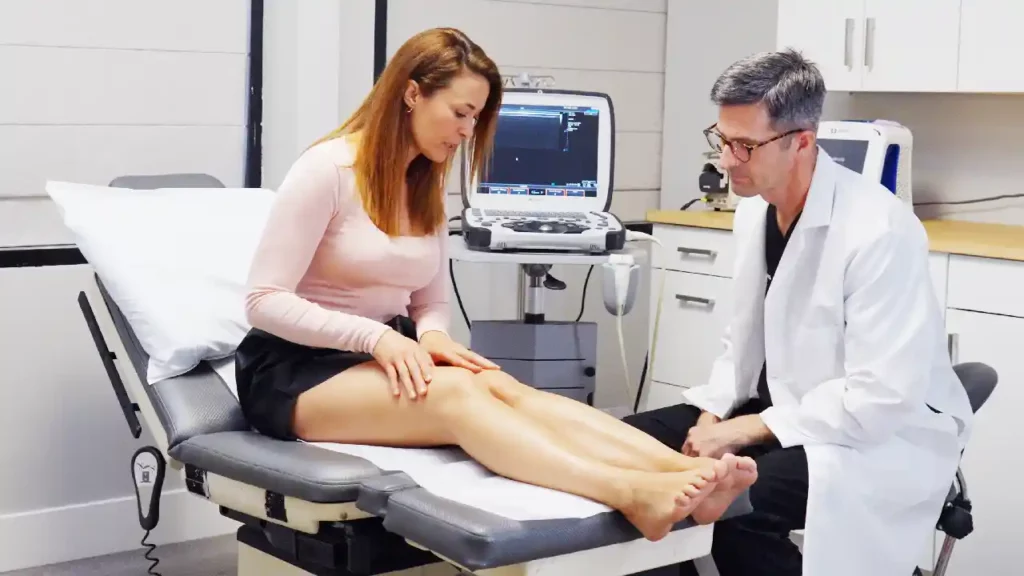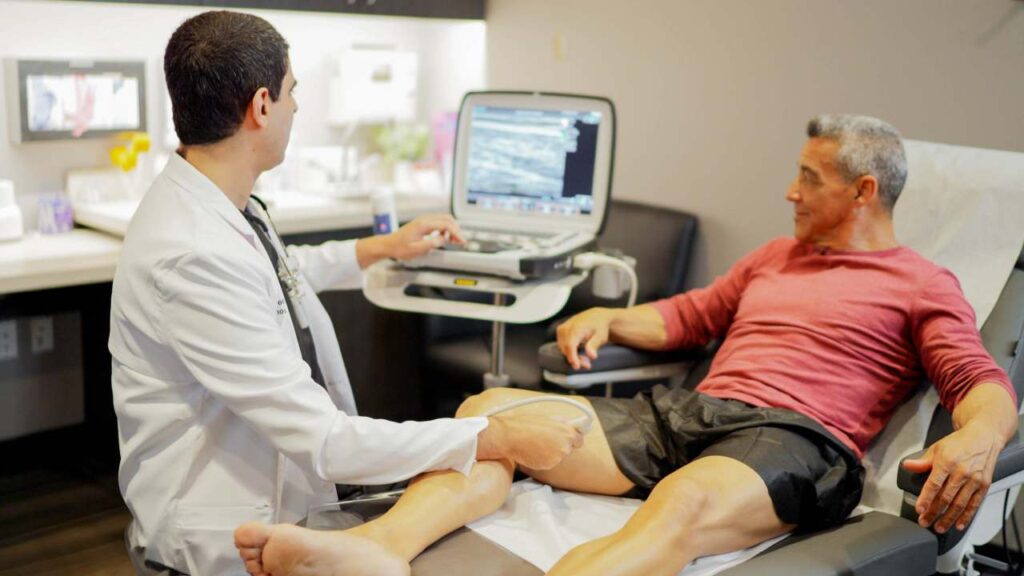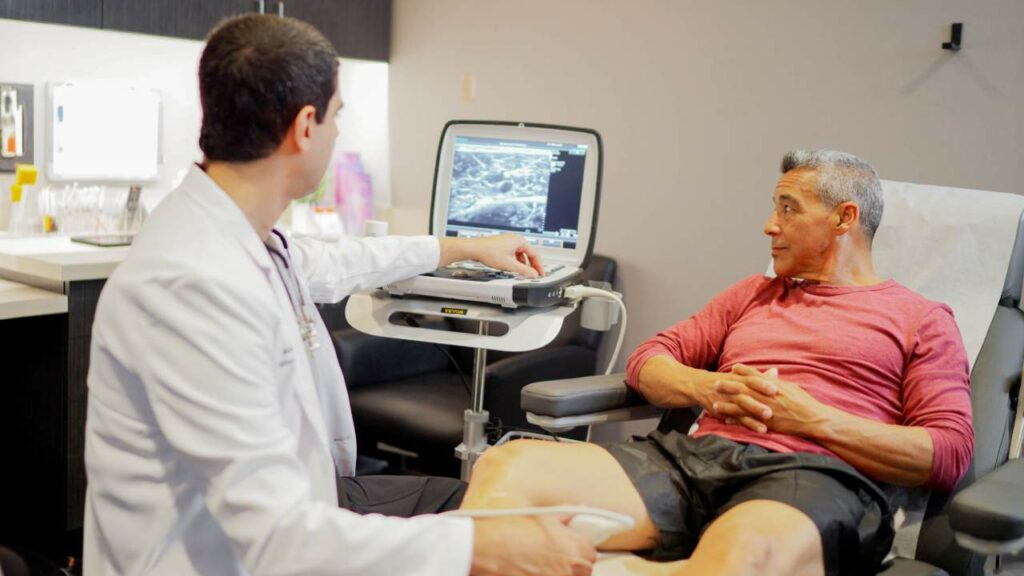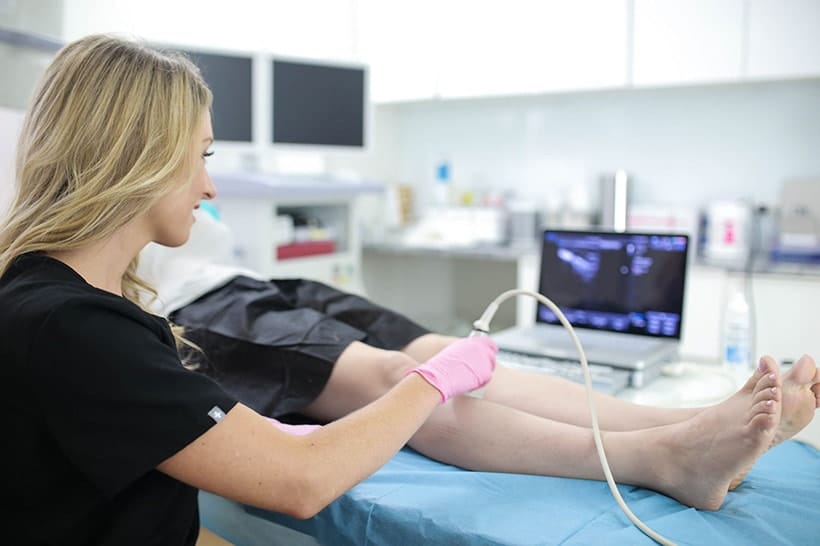1. Identify the Vein Specialist’s Credentials
A surprising number of practitioners who call themselves vein specialists aren’t board certified doctors. And many of the ones who are doctors didn’t specialize in a vascular field. So, it’s important to ask about the vein specialist’s credentials before you book an appointment. Varicose veins and spider veins aren’t only a cosmetic nuisance. They often stem from underlying issues, including Chronic Venous Insufficiency, faulty valves, or blood clots. Patients can’t determine the cause. That requires a doctor with specialized training.
A cosmetic vein center might be able to fade the appearance of certain small veins temporarily. But if your surface damage stems from a deeper malfunction, more vein damage will accumulate, and the correlated symptoms, like leg heaviness, pain, swelling, cramping, and restlessness, won’t improve. Here’s what to look for when choosing a vein specialist at a qualified vein center in California.
- Board Certification from the ABVLM or ABMS
- Certified in a vascular specialty like vein medicine
- Trained in minimally invasive procedures
- Offers several surgical alternatives
- Completed ultrasound training and performs their own ultrasounds
- Attended a reputable medical school
- Completed additional training or fellowships in vascular health
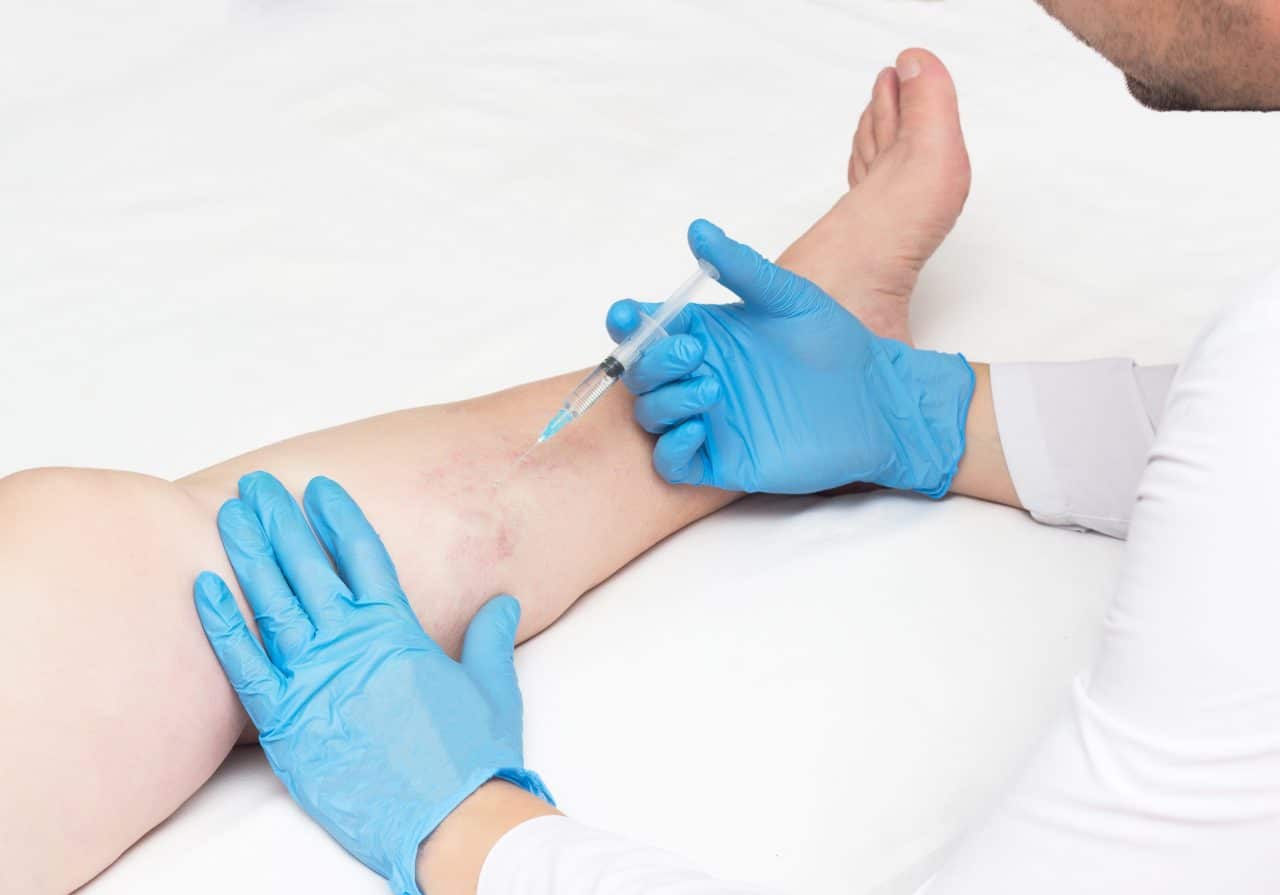
2. Ask If the Vein Treatment Clinic Is Accredited
Accreditation is not required for a facility to offer medical treatment. So, when a vein center voluntarily completes this process, it’s a sign that they’re committed to providing unparalleled care. The Intersocietal Accreditation Commission conducts an extensive review of the facility, physician’s competencies, treatment devices, and patients’ results before accrediting a vein center. Very few facilities achieve this gold standard of approval. If you choose an accredited vein center with board certified vein doctors, you can expect superior vein care.
3. Inquire About Their Insurance Policies
Vein health is increasingly linked to the health of several systems in the body. The good news is, insurance now covers vein treatment more than ever before. If you choose a reputable physician who uses FDA-approved vein treatments, you might receive 100 percent coverage for vein treatment. Our vein specialists are experts at identifying the cause of your vein damage. We can produce images of the problems in deeper veins and submit them to your insurance carrier. This prevents them from considering the treatment an elective or cosmetic procedure.
If you choose doctors like ours with ultrasound training, there’s a much higher chance your treatment will be covered. Our California vein centers accept all major insurance plans. We submit paperwork on your behalf and guarantee coverage before your appointment, so you’re never surprised by your bill. We know how to manage plans that require a trial of compression stockings or proof of vein disease. Our patients routinely get full coverage.
4. Determine Whether They Only Perform Vein Surgery
Vein surgery is no longer the first line of treatment for spider veins or varicose veins. In recent decades, minimally invasive procedures have largely replaced traditional vein stripping surgery. Newer procedures reduce the risks of anesthesia complications, infection, bleeding, scarring, nerve damage, and recurring varicose veins. Since minimally invasive vein treatments close veins within the body, instead of cutting them out, the defective veins can’t grow back. These factors make non-surgical methods preferable for most patients. If you choose a vascular surgeon, it’s important to determine whether they’re also trained in minimally invasive procedures. Surgery is required for a small percentage of veins, and for other blood vessels like arteries. But it’s overly invasive for spider veins and for most varicose veins.
5. Ask How They Treat Varicose Veins and Spider Veins
A vein specialist who only treats spider veins is likely a cosmetic specialist, not a board certified vein doctor. Choosing a vein doctor who treats all kinds of vein damage is a better decision. When spider veins and varicose veins form in the legs, they likely stem from Chronic Venous Insufficiency. This means there is a malfunctioning valve in a deeper vein that’s allowing blood to leak backward through the vein. That builds pressure in the vein, which causes the vein to swell (become varicose) or sprout new branches (spider veins) to offset the pressure. Choose a doctor who can treat the cause, not just the surface damage, to prevent an ongoing proliferation of unhealthy veins. Here are the top treatments to look for in a vein center.
- Sclerotherapy (Asclera or Varithena)
- Radiofrequency Ablation (ClosureFast)
- Mechanochemical Ablation (ClariVein)
- Vein Adhesives (VenaSeal)
6. See If They Treat Chronic Venous Insufficiency
Since many varicose veins and spider veins result from Chronic Venous Insufficiency, it’s wise to choose a vein doctor who can treat that as well. Our physicians can repair the visible damage and the cause without surgery in the same appointment. If you ignore Chronic Venous Insufficiency, more vein damage might appear, along with symptoms like cramping, swelling, itching, restlessness, heaviness, aching, venous ulcerations, bleeding, hyperpigmentation, and venous stasis dermatitis.
7. Ask How They Handle a Deep Vein Thrombosis
A deep vein thrombosis is a blood clot in a deep vein. These are more dangerous than clots in surface veins because, if they break loose, they can travel to the lung and cause a pulmonary embolism. While these are rare, you want a vein doctor who knows what to do if one is found. You also want the vein doctor to look for a deep vein thrombosis before treating your veins. It’s important to know where they are before injecting vein treatments. Patients with clots in deep veins are in the small group for whom surgery might be the safer treatment.
8. Determine How Easy It Is to be Seen
Once you’ve determined the doctor’s credentials, the facility’s standards, and the treatment options, the last factor is how easy it is to be seen. Some vein centers have one doctor, which means there are fewer appointments available. Our team of four specialists works together to provide exceptional care. We consult each other on patients’ cases. So, if you see one of our doctors, you get the expertise of all four of them. No matter who you visit at our vein center, you’re guaranteed world-class, Ivy League-trained expertise. We have three vein center locations in California to make it easier for you to be seen. Visit us in Palo Alto, San Diego, or San José for the same exceptional level of vein care. Our vein centers are easy to access by public transit, including Caltrain. See you soon!
